Turkish election rally cut short by violence as polls put candidates neck and neck
Sunday’s presidential vote is currently neck-and-neck
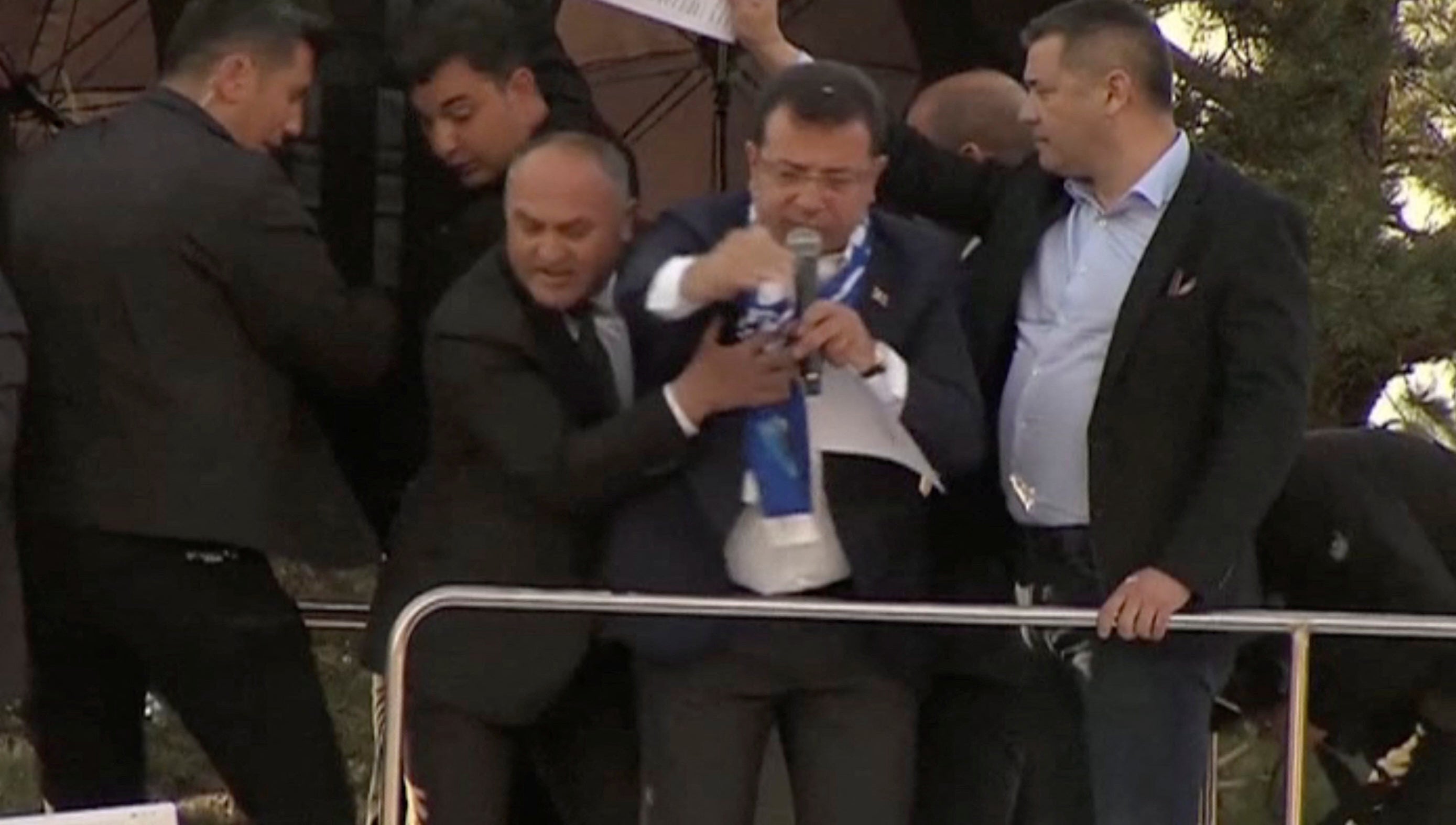
More than a dozen people have been detained over violence against an opposition election rally in Turkey amid growing concern over the fairness of Sunday’s knife-edge vote.
Istanbul mayor Ekrem Imamoglu of the main opposition Republican People's Party, CHP, was speaking on top of a campaign bus in Erzurum when about 200 protesters began throwing stones, forcing the event to be cut short.
He was campaigning on behalf of the CHP leader and presidential candidate Kemal Kilicdaroglu, the main opponent to President Recep Tayyip Erdogan.
He maintained that police and pro-Erdogan officials in Erzurum allowed the attack to go ahead. “There are citizens here who are injured, and you police are just standing by,” Imamoglu is heard saying in footage of the incident.
Bekir Bozdag, Turkey’s justice minister, said on Monday that an investigation was ongoing and 13 people had been detained so far.
Kilicdaroglu accused the mob responsible of being a “militarist coalition” seeking to “scare people away from the ballot box”, but Turkey’s interior minister appeared to blame Imamoglu for making “a speech that was meant to agitate, to provoke the crowd”.
The contest is currently neck and neck. If Erdogan wins, it would be his third consecutive term as president. However, opinion polls give a slight lead to Kilicdaroglu.
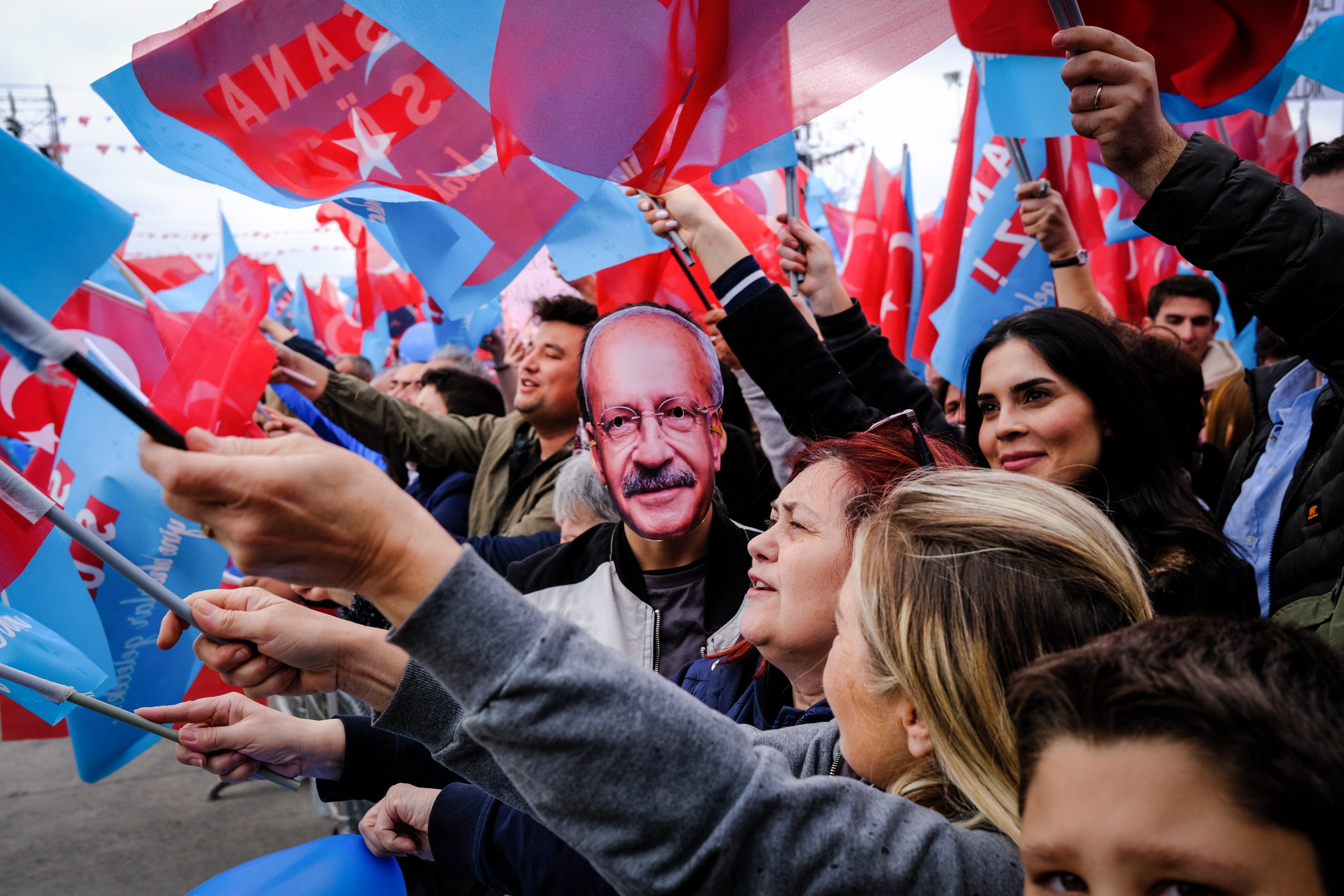
Turkey's opposition has long said that the country's elections are not a level playing field, particularly in media coverage. Some 90 per cent of Turkey's media is in the hands of the government or its backers, according to Reporters Without Borders, ensuring overwhelming airtime for the president. Only a handful of opposition newspapers remain in print, most having transitioned to online-only editions.
During April, Erdogan received nearly 33 hours of airtime on the main state-run TV station, according to opposition members of the broadcasting watchdog. His presidential opponent, Kemal Kilicdaroglu, received 32 minutes. CHP last month launched legal action against broadcaster TRT for failing to screen its campaign video.
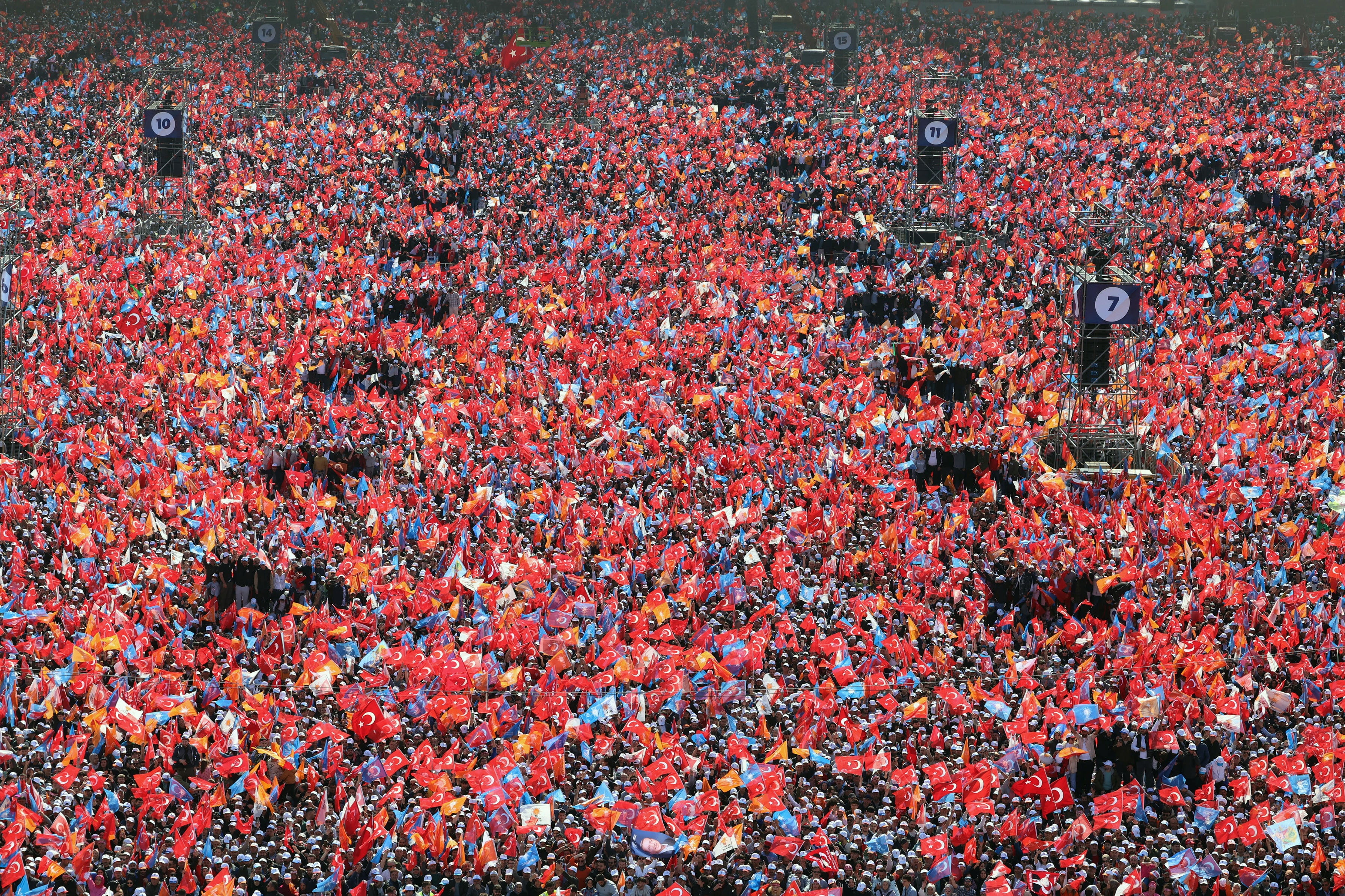
In a statement following the last presidential and general elections in 2018, observers from the Organisation for Security and Cooperation in Europe noted that Erdogan and his ruling AKP enjoyed “an undue advantage, including in excessive coverage by government-affiliated public and private media outlets”.
A “disinformation” law introduced in October allows a jail sentence of up to three years for spreading false information "with the sole aim of creating anxiety, fear or panic among the public".
Sinan Aygul, the only journalist to be prosecuted under the new law, was handed a 10-month prison term in February. He is currently free while appealing the case.
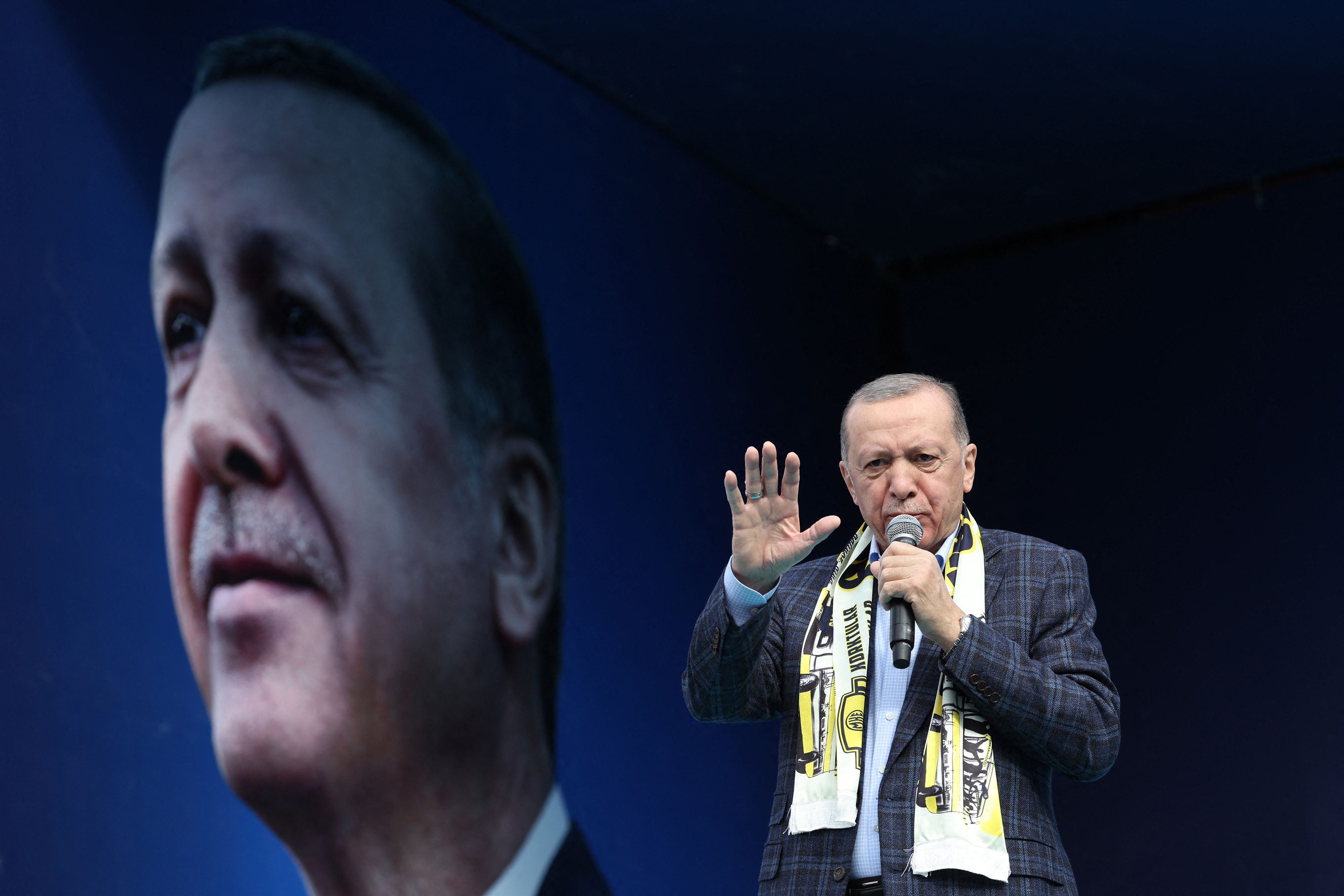
“The real aim is to silence all dissident voices in society,” said Aygul, chair of the journalists association in Bitlis, southeastern Turkey. It is “a law that targets anyone who expresses an opinion” and creates crimes from “basic journalistic activities,” Aygul said.
The imposition of a state of emergency over the 11 provinces hit by February's earthquake has also raised concerns about how the polls will be conducted in the region. A UN report said at least three million people had relocated from their homes in the quake zone, many of them heading to other parts of Turkey. However, just 133,000 people from the earthquake region have registered to vote outside their home provinces.
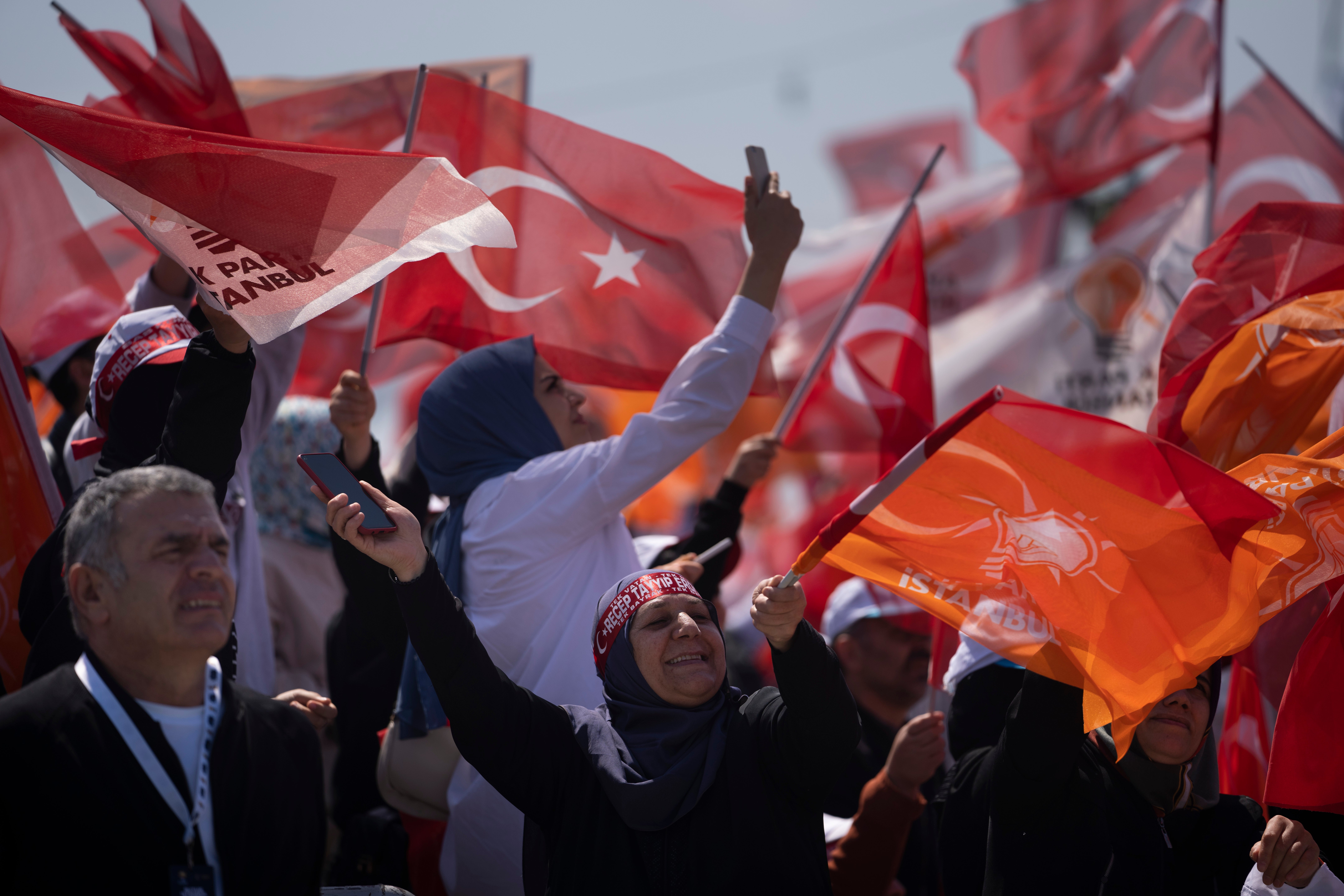
Critics also point to the bending of election law to allow government ministers to stand as parliamentary candidates while remaining in office, despite legal requirements to the contrary.
The election board, meanwhile, has previously faced criticism for siding with AKP objections during elections. In the 2019 local polls, Imamoglu was forced to face a rerun following AKP complaints of ballot irregularities.
Adem Sozuer of Istanbul University's law faculty told the opposition Cumhuriyet newspaper that voters had lost confidence in the election authorities. “There is widespread suspicion in a significant part of society that elections will be rigged,” he said.
Associated Press contributed to this report
Join our commenting forum
Join thought-provoking conversations, follow other Independent readers and see their replies
Comments

Bookmark popover
Removed from bookmarks